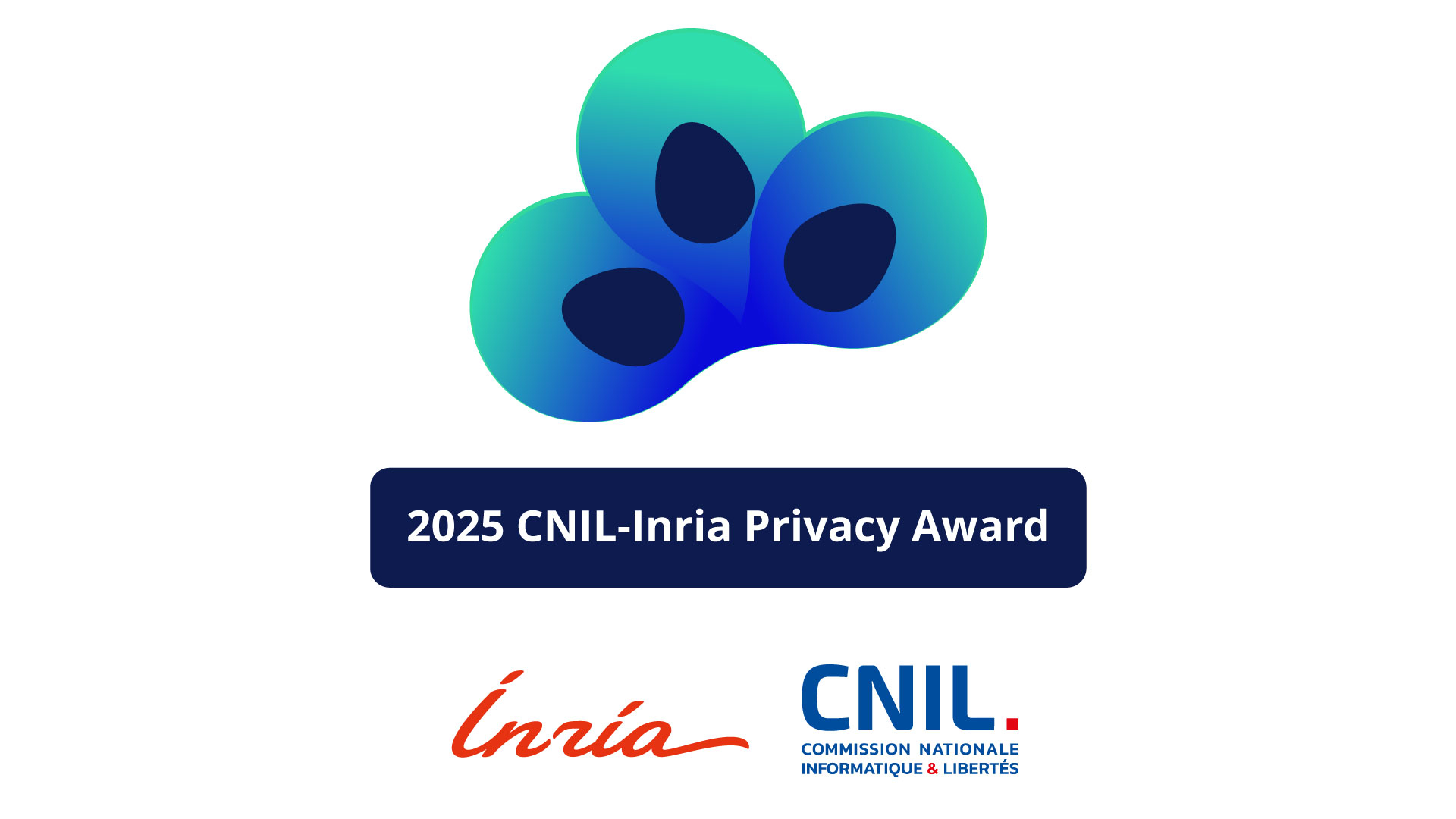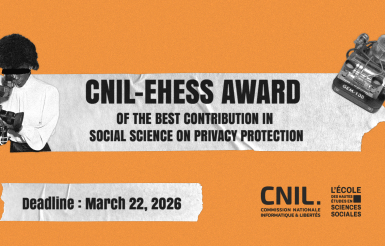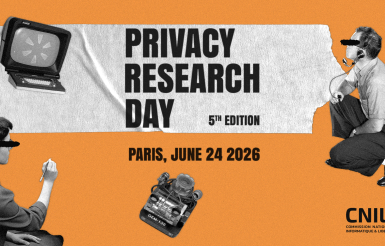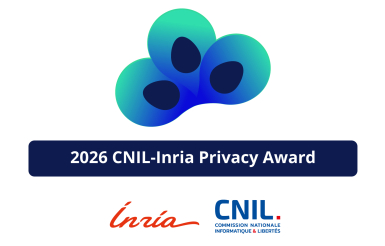Launch of 9th edition of CNIL-Inria Privacy Award
16 January 2025
The ninth edition of the CNIL-Inria Privacy Award starts on January 16, 2025. It will reward a scientific paper on privacy and personal data protection published between January 2022 and 2025. Deadline is extented to February 21st.

Who is concerned by the award?
The CNIL-Inria Privacy Award is intended to promote research in Computer Science and Privacy and to raise awareness among citizens and decision-makers on privacy and data protection issues.
Submitted papers must present work, at least partly, conducted in a research center based in one of the 27 countries of the European Union, and must necessarily address the improvement of the protection of personal data, AI transparency, or privacy.
Papers must:
- Have been published or accepted for publication between 2022 and 2025,
- Be written in French or English,
- Describe a research result, a technical innovation, propose a didactic presentation of the state of the art or an initiative to promote interdisciplinarity.
It should be possible to convey the substance of the contribution of the article in terms accessible to non-experts.
Examples of possible topics include (without limitation):
- Artificial intelligence and algorithm transparency,
- Privacy tools usability,
- New types of tracking and protections,
- User perspective on privacy,
- Privacy-enhancing technologies (PETs),
- Anonymization and reidentification,
- Applied cryptography,
- Challenges and solutions to implement the GDPR.
How can I participate ?
Applications files should be submitted before February 21st, 2025 midnight on the Easychair system. The rules of contest are available here.
To get more information about the award please use the following email address: prix.cnil-inria[at]cnil.fr.
Flashback on the CNIL-Inria 2024 award
On May 22th, 2024, during the 17th edition of the international conference Computer Privacy and Data Protection (CPDP) in Brussels, CNIL and Inria awarded Alexandre Debant and Lucca Hirsch for their paper: “Reversing, Breaking, and Fixing the French Legislative Election E-Voting Protocol”.
The jury is co‑organised by two co‑presidents, Benjamin NGuyen (Inria/INSA Centre Val de Loire) and Vincent Toubiana (CNIL) and with two vice‑presidents, Oana Goga (LIX - Inria) and Thibaud Antignac (CNIL).
The members of the jury are:
- Mário S. Alvim (Federal University of Minas Gerais – Brazil)
- Nicolas Anciaux (Inria, PETRUS team – France)
- Thibaud Antignac (CNIL – France)
- Aurélien Bellet (Inria PreMeDICaL team – France)
- Nataliia Bielova (Inria PRIVATICS team – France)
- Joe Calandrino (USA)
- Claude Castelluccia (CNIL/Inria Privatics team – France)
- Grazia Cecere (IMT Business School - France)
- Estelle Cherrier-Pawlowski (GREYC lab – ENSICAEN/CNRS – France)
- Jean-François Couchot (Université of Bourgogne Franche-Comté, FEMTO-ST - France)
- Mathieu Cunche (INSA-Lyon, Inria PRIVATICS – France)
- Giuseppe D’Acquisto (Garante per la protezione dei dati personali – Italy)
- Josep Domingo-Ferrer (University Rovira i Virgil, Director-CYBERCAT – Spain)
- Simone Fischer-Hübner (Karlstad University – Sweden)
- Sébastien Gambs (University of Québec in Montréal – Canada)
- Oana Goga (Laboratoire d'informatique de l'École polytechnique, Inria CEDAR team – France)
- Marit Hansen (State Data Protection Commissioner of Land Schleswig-Holstein and Landeszentrum für Datenschutz – Germany)
- Jaap-Henk Hoepman ( Radboud University Nijmegen – Netherlands)
- Kévin Huguenin (Université de Lausanne – Switzerland)
- Pierre Laperdrix (Université de Lille/CNRS -Inria Sprials team)
- Maryline Laurent (Telecom SudParis – France)
- Maryam Mehrnezhad (Royal Holloway University of London -UK)
- Veelasha Moonsamy (Ruhr University Bochum – Germany)
- Benjamin Nguyen (INSA-Centre Val de Loire, Inria PETRUS – France)
- Reza Shorki (National University of Singapore- Singapore)
- Fabien Tarissan (CNIL- ENS Paris-Saclay – France)
- Vincent Toubiana (CNIL – France)
- Narseo Vallina-Rodriguez (IMDEA Networks Institute and ICSI, University of California, Berkeley – Spain and USA)
- Kim Wuyts (PwC Belgium - Belgium)
The winner will be awarded during the 2025 Privacy Research Day and will be invited to present his or her paper during the Conference that will take place on June 2025.



